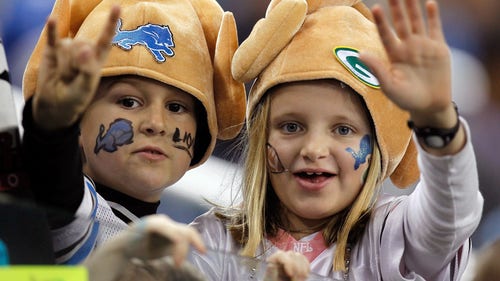Plenty of former NFL coordinators have found a home as assistants in Big Ten
It turns out the revolving door sending college coaches to the NFL also works in the other direction.
While the Big Ten lost its most prominent head coach as Jim Harbaugh took over the Los Angeles Chargers after leading Michigan to a national title, it gained four guys with Super Bowl rings who worked as NFL coordinators last season.
The list includes Washington defensive coordinator Steve Belichick, UCLA offensive coordinator Eric Bieniemy and Michigan defensive coordinator Wink Martindale.
This marks the first college coaching assignment for Belichick, who was on his father Bill’s New England Patriots staff from 2012-23. Bieniemy, a former Kansas City Chiefs and Washington Commanders offensive coordinator, hadn’t worked at college since a 2011-12 stint as offensive coordinator at Colorado, his alma mater. Martindale spent the last two decades in the NFL after working at Western Kentucky from 2000-03.
They’re confident they can adapt.
“I think you just need to teach and coach,” Bieniemy said after taking the job. “Teaching and coaching does not change, you still have to do a great job of overcommunicating clarity. You’ve got to make sure that you’re reaching your guys in the room. It’s never easy regardless of whether it’s the pro, it’s college or high school because everybody accepts or retains information differently.”
One more NFL coordinator from 2023 joined a Big Ten staff just before the start of the season when Wisconsin hired Jack Del Rio as a senior adviser to coach Luke Fickell.
Del Rio was the Commanders’ defensive coordinator from 2020-23 and worked with various NFL teams for most of the last quarter-century, including head coaching stints with the Jacksonville Jaguars (2003-11) and Oakland Raiders (2015-17).
Behind the moves
Del Rio was fired as the Commanders’ defensive coordinator last November. Belichick and Bieniemy were looking for new jobs in the wake of head coaching changes with their respective NFL teams. Martindale left his position as the New York Giants’ defensive coordinator amid reports of friction with coach Brian Daboll.
Even so, having them all head to the Big Ten is notable considering the additional demands college coaches face now that transfer restrictions have been loosened and players can profit off use of their name, image and likeness.
When Jeff Hafley left his job as Boston College’s head coach to become the Green Bay Packers’ defensive coordinator, it led to speculation that other college coaches could make similar moves.
These ex-NFL coordinators instead went the other way.
A couple of them have struggled early. In its lone game thus far, UCLA scored just one touchdown while edging Hawaii 16-13. Michigan allowed Texas to score on four of its first five drives in a 31-12 loss.
Yet their track records offer plenty of evidence they can succeed in their new environments.
Belichick worked on three Super Bowl-winning teams in 12 years at New England. Del Rio was Baltimore’s linebackers coach during the Ravens’ 2000 championship season, while Martindale coached their linebackers when they won the Super Bowl again 12 years later. Bieniemy coordinated Kansas City’s offense during their 2019 and 2022 Super Bowl-winning seasons.
Michigan’s accustomed to having a defensive coordinator with NFL experience. The two coordinators preceding Martindale - Mike Macdonald and Jesse Minter - both had worked as Ravens assistants. Michigan cornerback Will Johnson said having a coordinator with an NFL background is helpful.
“It means a lot,” Johnson said. “They’ve got a lot of experience, a lot of wisdom, so there’s a lot of good things, a lot of knowledge they’re able to give us.”
A trend?
Jason Garrett and Dave Wannstedt, two former NFL coaches broadcasting at the college level, wouldn’t be surprised if more NFL assistants consider going back to school.
Garrett coached the Dallas Cowboys from 2011-19 and was the New York Giants’ offensive coordinator from 2020-21. He noted college football’s recent changes have made it more similar to the NFL, with many major-conference programs hiring general managers to help with roster construction.
“Those pro coaches, there’s some familiarity with how college football has evolved due to the new roles,” said Garrett, who is as an analyst for Notre Dame telecasts. “Even though it’s a challenging atmosphere for them, it’s a comfortable atmosphere because it feels like it used to feel when they were in the NFL.”
Wannstedt was a head coach in the NFL with the Chicago Bears (1993-98) and Miami Dolphins (2000-04) and in college at Pitt (2005-10). He sees another reason why college assistant jobs could appeal to NFL coordinators.
“Nowadays, the college coaches are being paid near as much as the NFL coaches, so money’s really not a factor,” said Wannstedt, who works as an analyst for the Big Ten Network.
Indeed, USA Today released a salary database last year showing that 66 different college assistants were making at least $1 million per year and 18 were making at least $1.5 million. The same database in 2014 showed only five assistants earning $1 million and none getting $1.5 million.
These bigger salaries come with bigger responsibilities, particularly in recruiting. None of these former NFL coordinators had recruited college athletes in the age of social media and NIL the last time they were in college.
Bieniemy pointed out that at least one thing about recruiting hasn’t changed since he last worked in college.
“When it’s all said and done with, recruiting is about the relationships that you’re building with the people,” said Bieniemy, who previously worked at UCLA from 2003-05.
___
AP Sports Writers Larry Lage and Joe Reedy contributed to this report.
___
Get poll alerts and updates on the AP Top 25 throughout the season. Sign up here. AP college football: https://apnews.com/hub/ap-top-25-college-football-poll and https://apnews.com/hub/college-football








